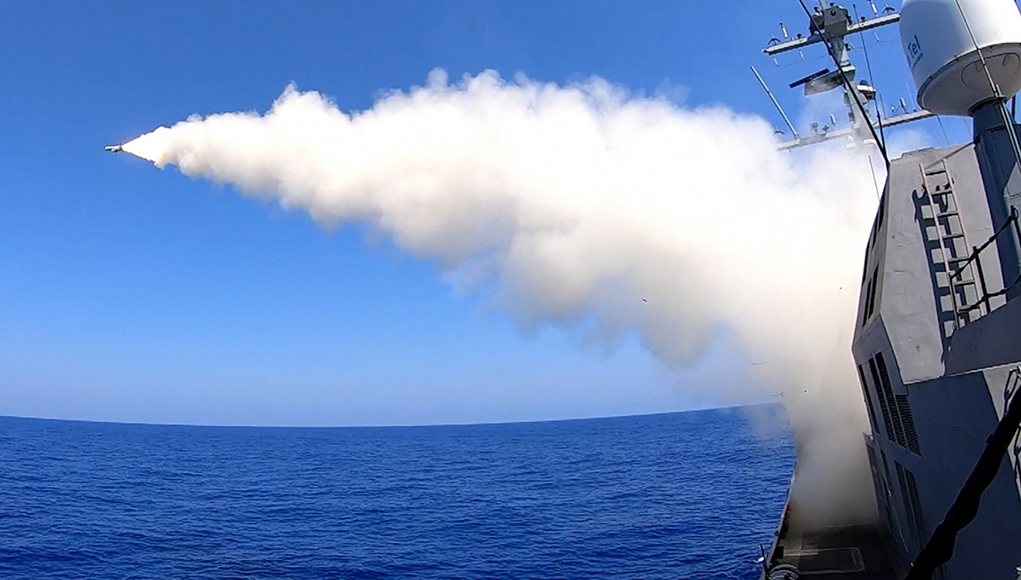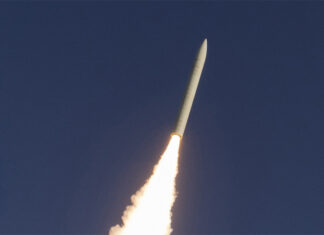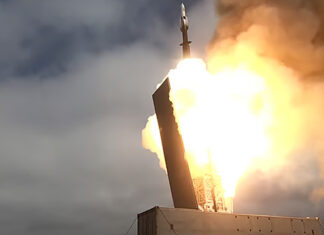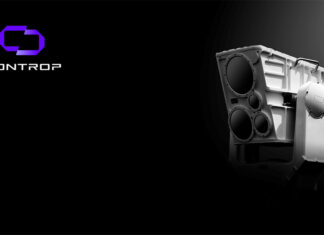Thales UK and Israel Aerospace Industries (IAI) have joined forces to offer IAI’s Sea Serpent anti-ship missile to replace the Harpoon Block1C anti-ship missile in service on board the Royal Navy Type-23 frigates.
The Harpoon, currently in service with three Type 45 destroyers and 13 Type 23 frigates, will reach its end of service life in 2023. Still, its planned successor, the Anglo-French Future Cruise and Anti-Ship Weapon (FCASW), will not be ready at least until 2030, leaving a severe capability gap open. In 2019 the UK Ministry of Defense (MOD) issued a request for information to missile manufacturers capable of providing an interim solution called “Interim Surface to Surface Guided Weapon (I-SSGW), described as a “ship-launched, over the horizon precision anti-ship capability and a terrain-following precision maritime land attack capability.”
Although the Royal Navy will phase out the Harpoon, the I-SSGW replacements currently address only five Type-23 frigates expected to remain in service for more than 10 years – HMS Sutherland, HMS St Albans, HMS Portland, HMS Kent, and HMS Somerset. To meet the tight schedule, initial deliveries are required by 2023, therefore, the solution requires mature and operational systems that offer smooth integration on the Type 23 frigate.
Several missile manufacturers considered as likely candidates for the program include the Naval Strike Missile offered by Kongsberg (Norway) and Raytheon (USA), and RBS15Mk3 or MK4 from Saab (Sweden) – both are deployed from container-launchers, the RBS15 which uses launch canisters larger than the Harpoon’s while the NSM settles for a more compact setup. MBDA is also a candidate with its latest Exocet MM40 Block IIIC. Another competitor likely to offer a Harpoon alternative for the Type 45 destroyers is Lockheed Martin with its vertically-launched LRASM missile. With dimensions similar to the Harpoon, IAI’s Sea Serpent would fit the Type-23 deck with minimal changes.
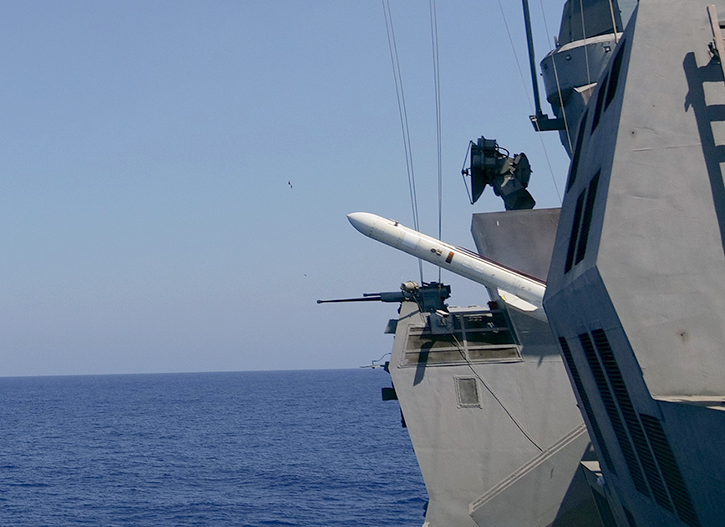
According to IAI, SEA SERPENT offers the Royal Navy a compelling solution to equip the Type 23 frigates with an anti-ship and anti-surface missile that can match and overmatch a rapidly expanding range and intensity of current and emerging threats. Both companies are fully committed to maximizing UK prosperity and creating employment and investment opportunities. The IAI/THALES in the UK solution for SEA SERPENT will concentrate on utilizing UK industry content and expertise for initial delivery, through-life maintenance and support, and future development and upgrade options. The MOD has set aside up to 200 million for the program, covering the missiles procurement, integration, and support for the initial 5-year period. Follow-on through-life support is also considered to maintain the system through the 2030s.

The SEA SERPENT delivers an agile, highly penetrative, combined anti-ship and land-attack capability at ranges significantly beyond 200 km (107 nm). It deploys an innovative RF seeker head and a sophisticated data analysis and weapon control system to provide precise target detection, discrimination, and classification. It overcomes both kinetic counter-fire and electronic countermeasures of increasing sophistication so that the missile can locate and attack its target in littoral, open-ocean, and overland environments.
Sea Serpent is designed to prevail and win in contested, congested, and confusing situations characterized by large numbers of decoys, disrupted reality, and heavy electronic interference, as well as clutter from land and false returns. In fast-moving situations, SEA SERPENT incorporates mid-course updates from real-time ISTAR feeds and the ability to re-task in flight, especially in cooperative engagements and distributed sensor-and-shooter networks.
SEA SERPENT also offers significant Military Off-the-Shelf Solution (MOTS) advantages in terms of cost, time-to-procurement, entry into operational service, and risk reduction. Benchmarked against the need to defeat the most sophisticated platforms and technologies, SEA SERPENT has been developed in parallel with similar missile systems in service with the Israeli Navy and was selected to provide powerful strike capabilities for Finland’s SSM2020 program.
IAI is already active in developing and marketing a 5-GEN anti-ship missile called BLUE SPEAR missile under the Singapore-based Proteus Advanced Systems joint venture with Singapore Technologies. Both Singapore and Israel use or intend to replace their Harpoon missiles with the new 5-GEN missile. These weapons are based on the heritage of IAI’s GABRIEL family of surface-to-surface missiles. The Israeli anti-ship missiles were also successful by the Finish Navy for the upgrading of Hamina-Class fast attack missile boats. SEA SERPENT has already demonstrated the capability to adapt to emerging threats and the technological flexibility for further growth and development.

